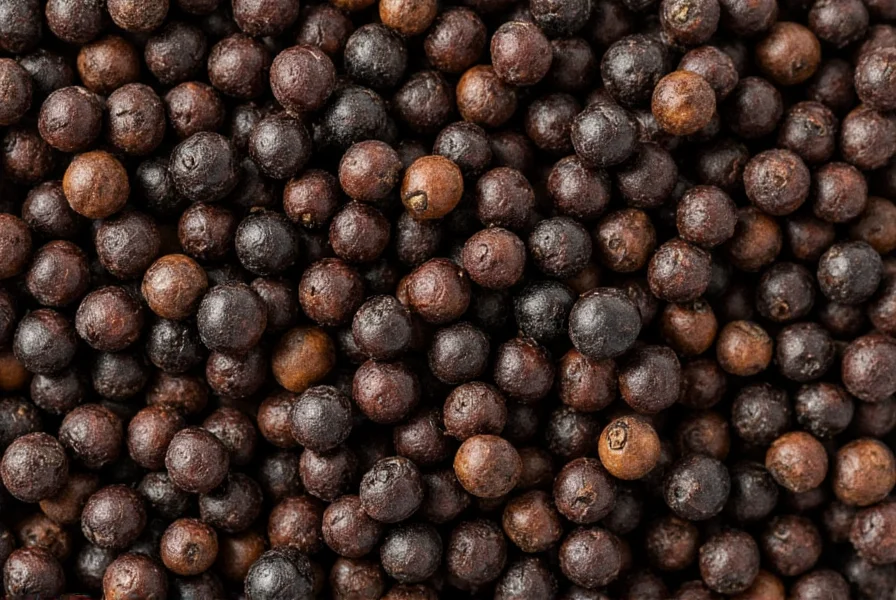For centuries, black pepper has been more than just a kitchen staple—it's a powerhouse of health-promoting compounds. The distinctive pungency of Piper nigrum comes from piperine, which constitutes approximately 5-10% of the spice's composition and drives most of its scientifically validated health benefits. Modern research continues to uncover how this ancient spice contributes to wellness in measurable ways.
The Science Behind Pepper's Health Properties
Understanding what makes black pepper healthy requires examining its biochemical profile. Piperine isn't just responsible for pepper's characteristic bite—it interacts with human physiology in multiple beneficial ways. Unlike many culinary spices that offer primarily flavor, black pepper demonstrates bioactive properties that enhance the effectiveness of other nutrients while providing standalone health advantages.
Key Health Benefits of Black Pepper
Enhanced Nutrient Absorption
Perhaps the most well-documented benefit of black pepper consumption is its ability to significantly increase the bioavailability of other nutrients. Research published in Planta Medica demonstrated that piperine can enhance curcumin absorption by up to 2,000%. This synergistic effect explains why traditional Indian cuisine often combines turmeric with black pepper.
Studies show piperine also improves absorption of:
- Resveratrol (from grapes and berries)
- Beta-carotene (precursor to vitamin A)
- Selenium (important antioxidant mineral)
- Vitamin B6 and other water-soluble vitamins
| Nutrient | Absorption Increase with Piperine | Research Source |
|---|---|---|
| Curcumin | Up to 2000% | Planta Medica, 1998 |
| Resveratrol | Approximately 229% | Molecular Nutrition & Food Research, 2010 |
| Beta-carotene | Approximately 60% | Journal of Agricultural and Food Chemistry, 2005 |
| Selenium | Approximately 30-40% | Nutrition Research, 2007 |
Anti-Inflammatory Effects
Chronic inflammation underlies many modern diseases. The anti-inflammatory properties of black pepper have been demonstrated in multiple studies. Research in the Journal of Medicinal Food showed piperine significantly reduced inflammatory markers in animal models. Human studies suggest regular consumption may help manage inflammation-related conditions like arthritis.
Antioxidant Protection
Black pepper ranks highly on the Oxygen Radical Absorbance Capacity (ORAC) scale, measuring antioxidant capacity. Its compounds neutralize free radicals that damage cells. A study in Food Chemistry found black pepper extract demonstrated substantial radical-scavenging activity, comparable to other potent spices like cinnamon and cloves.

Digestive Health Support
Traditional medicine systems have long used black pepper for digestive issues. Modern science confirms it stimulates digestive enzymes including amylase, lipase, and protease. Research in the European Journal of Pharmacology demonstrated piperine enhances gastrointestinal motility while reducing intestinal gas formation.
Metabolic Benefits
Emerging research suggests black pepper may support metabolic health. A 2020 study in Nutrients found piperine supplementation improved insulin sensitivity in prediabetic subjects. Other research indicates potential benefits for weight management through thermogenic effects and fat metabolism regulation.
Maximizing Pepper's Health Benefits
To reap the maximum health advantages of black pepper, consider these evidence-based approaches:
- Combine with turmeric: Add 1/4 teaspoon of black pepper to turmeric-containing dishes or supplements
- Use freshly ground: Whole peppercorns retain piperine better than pre-ground pepper
- Pair with healthy fats: Piperine is fat-soluble, so consume with olive oil, avocado, or nuts
- Moderate consumption: 1-2 grams daily (about 1/2 to 1 teaspoon) provides benefits without side effects
Potential Side Effects and Considerations
While generally safe, excessive black pepper consumption may cause:
- Stomach irritation in sensitive individuals
- Interference with certain medications (blood thinners, seizure medications)
- Digestive discomfort at very high doses (above 5 grams daily)
People with ulcers, GERD, or inflammatory bowel conditions should consult healthcare providers before significantly increasing pepper intake. The safest way to consume black pepper is as part of a balanced diet rather than through concentrated supplements.
Conclusion: Integrating Pepper Into Your Wellness Routine
The proven health benefits of black pepper make it one of the most valuable spices in your pantry. From enhancing nutrient absorption to providing anti-inflammatory protection, this humble spice offers scientifically supported advantages that extend far beyond flavor enhancement. By understanding how to properly incorporate black pepper into your diet, you can harness these benefits while enjoying its distinctive taste.
Frequently Asked Questions
Does black pepper really help with nutrient absorption?
Yes, multiple studies confirm black pepper significantly enhances nutrient absorption. Research shows piperine, its active compound, can increase curcumin absorption by up to 2,000%. It also improves absorption of resveratrol (by approximately 229%), beta-carotene (by about 60%), and selenium (by 30-40%). This makes black pepper particularly valuable when consumed with other nutrient-dense foods.
What's the difference between black pepper and white pepper health benefits?
Black pepper contains higher piperine levels (5-10%) compared to white pepper (2-7%) since the outer layer removed to make white pepper contains significant piperine. Black pepper generally offers superior antioxidant and anti-inflammatory benefits. White pepper has a milder flavor but fewer documented health benefits due to lower piperine content and different processing methods.
How much black pepper should I consume daily for health benefits?
Research suggests 1-2 grams daily (approximately 1/2 to 1 teaspoon of freshly ground pepper) provides optimal health benefits without side effects. This amount delivers sufficient piperine to enhance nutrient absorption and provide anti-inflammatory effects while remaining well-tolerated by most people. Consuming more than 5 grams daily may cause digestive discomfort in some individuals.
Can black pepper help with weight loss?
Emerging research indicates black pepper may support weight management through several mechanisms. Piperine appears to enhance thermogenesis (calorie burning), regulate fat metabolism, and improve insulin sensitivity. A 2020 study in Nutrients found piperine supplementation improved metabolic markers in prediabetic subjects. While not a standalone weight loss solution, black pepper can be a valuable component of a comprehensive weight management strategy.
Is there a best time to consume black pepper for maximum benefits?
For optimal benefits, consume black pepper with meals containing nutrients it enhances, particularly turmeric-containing dishes. Since piperine is fat-soluble, pairing it with healthy fats (like olive oil or avocado) improves absorption. There's no specific 'best time' beyond incorporating it into regular meals—consistency matters more than timing. Freshly grinding peppercorns just before eating preserves maximum piperine content.










 浙公网安备
33010002000092号
浙公网安备
33010002000092号 浙B2-20120091-4
浙B2-20120091-4